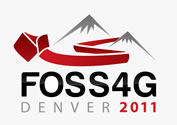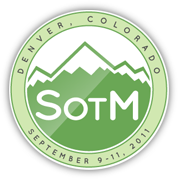GeoAPI 3.0, Java interfaces as an OGC standard
GeoAPI 3.0 is a new OGC standard – approved in April 2011 – specifying a set of Java language programming interfaces for geospatial applications. The API provides the community with a point of interoperability between client code written to use the API and library code written to implement the API. GeoAPI aims to achieve for geospatial applications what JDBC interfaces achieved for database applications.
The GeoAPI interfaces closely follow the abstract model and concrete specifications published collaboratively by the International Organization for Standardization (ISO) in its 19100 series of documents and the Open Geospatial Consortium (OGC) in its abstract and implementation standards. GeoAPI provides an interpretation and adaptation of these standards to match the expectations of Java programmers. This presentation will give an overview of ISO 19115 (metadata) and ISO 19111 (referencing) standards, explain how abstract models are mapped to Java interfaces, and how historical evolution like ISO 19115-2 (imagery metadata) are integrated.
For users, working example codes using the Geotoolkit.org reference implementation will be provided. These examples use only standard Java API and GeoAPI without explicit reference to any implementation. For implementers, the presentation will introduce the GeoAPI testing tools for conformance verifications.
GeoAPI is driven by an OGC Standard Working Group (SWG). The standardization process will be briefly discussed, and we will suggest how peoples can contribute both inside the SWG or outside as non-OGC members. Then we will present future developments.
The GeoAPI web site is located at http://www.geoapi.org. The GeoAPI 3.0 JAR files will be signed by OGC and deployed to Apache Maven Central.
Martin Desruisseaux is the main author of the Geotoolkit.org metadata, referencing and grid coverage modules. He did a Ph.D. in oceanography making extensive use of remote sensing data. The development of the Geotk library targets the needs identified by this experience in a scientific field.











